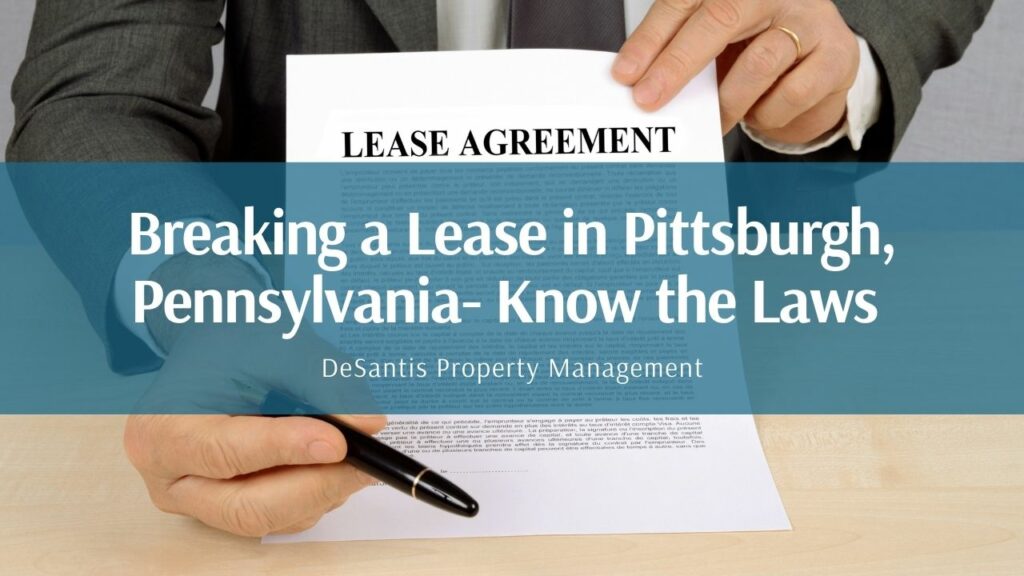
Broadly speaking, tenants who sign a lease do so with the intention of staying for the entire lease period. But sometimes the renter may need to terminate their lease early and the reasons can be varied. Some reasons are legally justifiable while others are not.
The renter can move out citing infringement on their privacy. Every renter in Pennsylvania has a right to the quiet and peaceful enjoyment of their rented premises. Matter of fact, you must give your renter a notice of at least 24 hours before accessing their rented units.
Your renter may also need to break their lease to get closer to their new place of work or school. Other reasons to break a lease include:
- Military deployment
- Job loss
- Divorce
- Serious illness
- Job transfer
- Lack of safe and habitable rental premises
Regardless of the reason, though, breaking a lease in Pennsylvania is a serious violation of the agreement. After all, it’s a legally binding contract between you and your renter, and breaking during the lease term can attract financial repercussions.
The following is everything you need to know about breaking a lease in Pennsylvania.
Lease Termination Notice Requirements in Pennsylvania
Just like everywhere else in the country, tenants in Pennsylvania must provide their landlords with certain notices when looking to terminate their lease.

The notice to serve depends on the length of the agreement:
- For month-to-month agreements, tenants must provide landlords with a written notice of at least 15 days.
- For leases that run for a year or less or for an indeterminate time, tenants must provide a 15 days’ written notice.
- And for leases that run for more than a year, tenants must provide their tenants with a written notice of at least 30 days.
Insufficient Justification for Breaking a Lease in Pennsylvania
There are times when a renter needs to break their lease. The reasons for breaking the lease agreement may be understandable they may not be legally justifiable. This means that a renter will have no legal protection against penalties for their failure to honor the lease agreement.
The following reasons don’t offer sufficient justification to release a renter from the lease agreement:
- The tenant is moving closer to their new place of work.
- The tenant is moving into the new house they recently bought.
- Tenant is upsizing or downsizing.
- The tenant is moving in with their partner.
- The tenant is moving to be closer to their family.
- When Breaking a Lease is Legally Justified in Pennsylvania
Generally, a renter who breaks their lease in Pennsylvania owes and must pay rent for the entire lease term. That being said, there are exceptions to this rule.
Your renter may have legal cause to break their lease for the following reasons:

1. The tenant is starting active military duty
Active service members, such as members of the armed forces and the activated National Guard, may be able to break their lease as a result of deployment or after receiving a change of station orders.
The protection starts on the date they enter active duty and can end up to ninety days after being discharged.
According to Pennsylvania law, if a tenant breaks the lease, they must do so following the Service Members Civil Relief Act. This means they must:
- Show proof that they signed the lease before starting active duty.
- Show proof that they intend to stay on active duty for the next ninety days at least.
- Provide you with a notice of at least 30 days.
Other members who are considered service members include:
- Commissioned corps of the Public Health Service
- Commissioned corps of the National Oceanic and Atmospheric Administration
2. The unit is no longer habitable
Every state in the U.S. has specific habitability codes that every rental must adhere to. If you fail to meet certain health, safety, and building codes, your renter may have a right to break the lease.
As a general rule of thumb, a habitable apartment or rental unit must have the following:
- Sanitary premises
- A working bathroom and toilet
- Smoke and carbon monoxide detectors
- Adequate ventilation system
- Working electricity
- Heat during cold weather
- Hot water
- Drinkable water

If you fail to provide a house with such things, a small claims court would probably conclude that you have “constructively evicted” the tenant. As such, the tenant wouldn’t have any further responsibility regarding rent.
3. You are harassing your tenant
Landlord harassment is unlawful in the state of Pennsylvania. The following are actions that can be considered harassment:
- Creating nuisances that disrupt the tenant’s right to quiet enjoyment.
- Refusing to perform maintenance in a timely manner.
- Disrupting utility services that impact the rental’s habitability.
- Cutting off amenities that were previously offered in the lease agreement.
- Removing personal belongings from the rental unit.
- Unlawfully changing the locks.
- Not providing proper warning.
- Illegally entering the rental property.
- Refusing to accept rent payments as a means of intimidation.
- Filing false charges or false eviction against the tenant.
- Sexually harassing your tenant.
- Verbally or physically threatening the tenant.
Any of these examples of landlord harassment provides the tenant with cause to break their lease early.
4. The lease has an early termination clause
According to the landlord tenant law, your tenant may also be able to use an early termination clause to terminate their lease agreement. If you provide one, make sure to make it as detailed as possible.
State, for example, the warning requirements and the penalty fee the tenant must pay if they want to use the early termination clause.

Summary
You must familiarize yourself with Pennsylvania’s leasing law. In addition to these regulations, you must stay informed of landlord-tenant laws, security deposit laws, eviction laws, and more.
If you would like help staying up-to-date on Pennsylvania’s landlord tenant laws or are finding self-management challenging, consider hiring the services of a qualified company. The experts at DeSantis Property Management will happily answer any questions you may have!
Disclaimer: This blog isn’t a substitute for professional legal advice. Laws change and this blog might not be up to date. For further help, kindly hire a qualified attorney or an experienced property management company.

